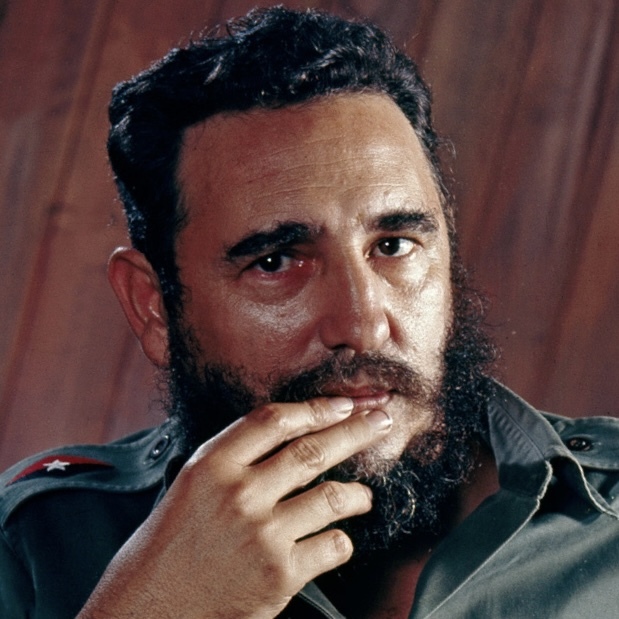In an alternate universe, he was still around into the 50s. :deeper-sadness:
This is great man thinking comrade. You forget that the worker's soviets still had most of the power. Many of the economic decisions and directions of the USSR were guided at least somewhat democratically. Changing out individuals wouldn't have as serious a repercussion as you think. Like how US presidents change all the time, but the bourgeois dictatorship's political machinery operates almost uninterrupted between them.
As much as I'm against "oh if only x guy was around" narratives, some of the shit Stalin did really leaves you dumbfounded. Can't imagine Lenin going that overboard.
Trotsky being less outcast & guiding the red army in WWII would also be interesting, since by many accounts he was a great military leader.
Idk. I think he was a great military organizer. I don't know to what extent he was involved in tactical/strategic or other traditional areas of military decision-making.
That said, Stalin purged all those guys too.
sometimes I wonder what would have become of Lenin had he lived to see the failures of the revolution in germany and Italy. would he have adopted the policies of stalin in the 30s?
low key believe his death coming at a time where the permanent revolution was still worth fighting for resulted in him being untainted by having to maintain power in a time where he's surrounded by enemies on all sides.
I think the main difference is that Lenin might have calmed the factional feuding down a bit. The way the Stalin-Trotsky split played out had a lot to do with Lenin being dead. But yeah, Lenin would have pursued a lot of the same policies Stalin did. For that matter, Trotsky would have pursued a lot of the same policies. They all were constrained by the same dire historical circumstances.
Lenin would have pursued a lot of the same policies Stalin did
Collectivisation and all the fumbling along the way was probably something that would happen under any communist leader. On the other hand many consider the Great Purge to be a sort of an unforced error on the part of Stalin...
Lenin being untainted
To paraphrase
DengChen Yun, if Mao had died at 30 he would have been a perfect revolutionary hero - but alas, he lived to be 70.Fidel was the only one who lived forever and was still just as cool when he died.
Yeah chuds can't even take swipes at Castro the same way they do at Mao and Stalin.
They'll attack Stalin for the purges and Mao for the great leap forward, and it takes some serious historical knowledge to actually engage with their points.
For Castro it's like: "he was a communist" or "he took my parent's plantations"
You can just respond with yeah good okay
Made an account to reply to this but it looks like iKarli already took care of it.
I think you're confusing Deng with Chen Yun (who was another high-ranking Chinese communist party official who was also anti-cultural revolution and pro-market socialism):
Had Mao died in 1956, his achievements would have been immortal. Had he died in 1966, he would still have been a great man but flawed. But he died in 1976. Alas, what can one say?
Deng's assessment of Mao was more positive:
We will make an objective assessment of Chairman Mao’s contributions and his mistakes. We will reaffirm that his contributions are primary and his mistakes secondary. We will adopt a realistic approach towards the mistakes he made late in life. We will continue to adhere to Mao Zedong Thought, which represents the correct part of Chairman Mao’s life. Not only did Mao Zedong Thought lead us to victory in the revolution in the past; it is — and will continue to be — a treasured possession of the Chinese Communist Party and of our country. That is why we will forever keep Chairman Mao’s portrait on Tiananmen Gate as a symbol of our country, and we will always remember him as a founder of our Party and state. Moreover, we will adhere to Mao Zedong Thought. We will not do to Chairman Mao what Khrushchov did to Stalin.
We must make a clear distinction between the nature of Chairman Mao’s mistakes and the crimes of Lin Biao and the Gang of Four. For most of his life, Chairman Mao did very good things. Many times he saved the Party and the state from crises. Without him the Chinese people would, at the very least, have spent much more time groping in the dark. Chairman Mao’s greatest contribution was that he applied the principles of Marxism-Leninism to the concrete practice of the Chinese revolution, pointing the way to victory. It should be said that before the sixties or the late fifties many of his ideas brought us victories, and the fundamental principles he advanced were quite correct. He creatively applied Marxism-Leninism to every aspect of the Chinese revolution, and he had creative views on philosophy, political science, military science, literature and art, and so on.
I would be quite content if I myself could be rated fifty-fifty in merits and demerits. But one thing I can say for myself: I have had a clear conscience all my life. Please mark my words: I have made quite a few mistakes, and I have my own share of responsibility for some of the mistakes made by Comrade Mao Zedong. But it can be said that I made my mistake with good intentions. There is nobody who doesn’t make mistakes. We should not lay all past mistakes on Chairman Mao. So we must be very objective in assessing him. His contributions were primary, his mistakes secondary. We will inherit the many good things in Chairman Mao’s thinking while at the same time explaining clearly the mistakes he made.
His view of Mao's actions was said to be "70 percent right and 30 percent wrong." This was similar to his view of Stalin:
To use the Chinese way, the score for Stalin would be thirty percent to seventy percent: thirty for his errors and seventy for his merits. Furthermore, Chairman Mao agreed with me on the question of Stalin’s score, and, after the twentieth Congress of the CPSU, members of the Communist Party of China expressed a very clear judgment of Stalin. We said that we would always continue to consider his writings as classic works of the international Communist movement.
God I don't know how to describe it but I love the way Chinese communists handle 'controversial topics' like this. Like the taking the good and leaving the bad and 70-30 'score.' It's logical and feels scientific, like ideological progress is being made through their discussions without getting all caught up in historical feuds.
They do the thing where they acknowledge mistakes of past socialism, but don't completely blow those mistakes out of proportion and uphold the historical socialist project as a whole. It's refreshing to read when you're mostly exposed to western opinions where the majority of people feel compelled to disavow every socialist project and believe all of the most outrageous propaganda points, and in response to that the largest group of people upholding historical/existing socialism are the ones that deny that any mistakes occurred at all.
I'd just be afraid to look at any alternate USSR leadership universes for the sole reason that they absolutely MUST win WW2, or else most of Eastern Europe gets genocided.
I would love to see an Alexandra Kollontai/Worker's Opposition universe though. It's on the outer edge of realistic outcomes, but every other nation would lose their MINDS if a global superpower had a woman leading it.
Yeah, without the massive forced collectivization and industrialization plans that Stalin initiated, WW2 looks a lot different.
There's also the flip side of Germany possibly flipping communist with more active Soviet international activity during the late 20s to mid 30s. Or at the very least a trade embargo in reaction to Nazi's gaining power.
Hindsight is 20/20 though, and Russia basically ran ahead and no one in Europe followed like was expected. Marx, Engels, Lenin, they all kinda expected the revolution to spread like wildfire after a successful one, and while it did, it just didn't in the industrial core. Which was very bad because the industrial core had industrial weapons.
It's my impression that all of the Bolsheviks knew how dire the threat of Nazism was, I mean Trotsky was writing about it all through the 30s.
The problem i see with Trotzky leading the USSR isn't that he would have underestimated fascism, it's that he was really awful at getting the party on his side. I mean, sure, in a scenario where he was in charge during WW2, that obviously would not apply for some reason, but that brings us to the core of the problem with such scenarios: A Trotzky leading the Soviet Union wouldn't be the historical Trotzky, it would be some other dude looking just like Trotzky.
Lenin was great because he died before he had to live through catastrophe
this is actually the true reason everyone loves lenin and hates stalin because lenin fucking died before the bolsheviks had to start making really tough decisions. Lenin still the GOAT tho.
Lenin's early success larger followed from the catastrophic fuck-ups of his liberal peers. But the bolsheviks did make tough choices during Lenin's era. Just ask anyone who lived through the Russian Civil War. Lenin brought the country out stronger and more united for it all.
Stalin's big failure was in his inability to maintain unity across the Internationalist Movement. Retreating to Communism in One (extremely large) Country after envoys to western europe and the US failed, pissing off Tito in Yugoslavia, failing to establish a democratic foundation for transitioning power, failing to build out Soviet system that could survive his death...
His grip was too tight and his shadow loomed too large such that modern day Russians laud Stalinism without the Communism.



